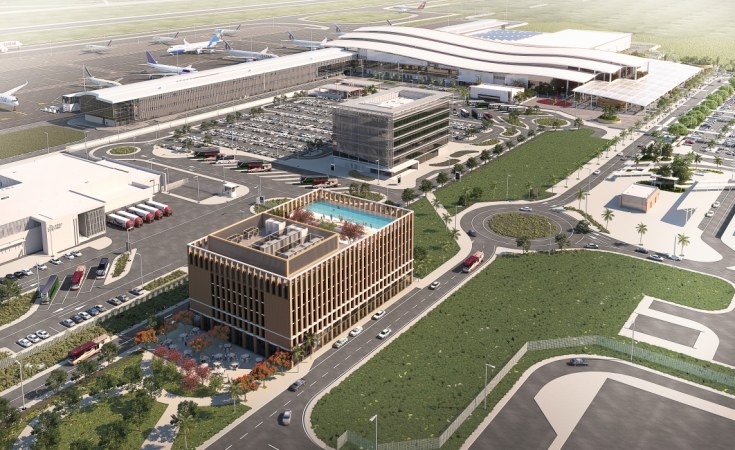Minister of Infrastructure, Jimmy Gasore, has assured Rwandans that an additional 27 MW of electricity will be supplied to the national grid by the end of 2023. This power will be generated from the regional Rusumo hydroelectric power plant.
During the 15th meeting of ministers in charge of energy in Tanzania, Rwanda, and Burundi, convened to assess the construction progress, on September 30, Gasore said that the project's implementation is at 99.7 per cent.
"Commissioning tests of the three units are successful and will be complete by October 2023. We are aiming to fully use Rusumo electricity by the end of 2023," he said.
The $340 million project is one of the investment programmes under the Nile Basin Initiative (NBI) with a mandate to facilitate jointly agreed transformative regional trans-boundary cooperative projects, or in-country projects with regional impact, related to the common use of the Nile Basin water resources.
It will generate power using water from the Akagera River that straddles the three countries.
Akagera is one of the sources of the Nile River, flowing into Lake Victoria and eventually into the Nile River itself.
Experts are urging for the prevention of river pollution to mitigate its impact on significant projects, such as power projects.
"We met as three ministers in the region to assess the progress of the Rusumo power project. One of three machines is already supplying electricity to Rwanda and Burundi as a test to assess if the electricity supplying network is working well," Gasore said.
He said the electricity supply in Rwanda will be stable thanks to the Rusumo power plant.
"Having more power plants is helpful. If one power plant faces issues, others such as the Rusumo power plant will be operating," he said.
Gasore said that there would also be a system to sell power from one country to another.
"One country can sell power to another country. We will launch the plant in December this year. It will help achieve universal electricity access," he said.
The main constructions of the power plant are located at the Rusumo border between Rwanda and Tanzania. The switchyard is located on the Rwandan side.
There will be transmission lines for electricity, within 94km from Rusumo to Nyakanazi (Tanzania), 161km to Rwanda, and 194km to Burundi.
The project will also supply electricity to the airport in Bugesera. On the Rwandan side, the project again includes the rehabilitation of 30km of feeder roads in Kirehe District, the construction of 28.7km of roads in Ngoma District, a water pipeline for supplying 10,500 people in Gatonde-Gahima cells, 33km of Gituku-Murama water supply system, construction of 9.54km of Kigabiro-Rurenge-Gatore feeder road, and others.
Rwanda revises electrification plan
According to Rwanda Energy Group, there is still a need for $600 million (over Rwf610 billion) to ensure 100 per cent access to electricity for the entire country's population by 2024.
The government has revised the National Electrification Plan (NEP) to augment the number of households connected to the national grid and bolster off-grid solutions.
As of June 2023, 65.7 per cent of Rwandan households had gained access to electricity.
This figure comprises 47.6 per cent connected to the national grid and 18.1 per cent to off-grid systems, such as solar homes and microgrids.
Rwanda has set an ambitious target to connect all households by 2024.


